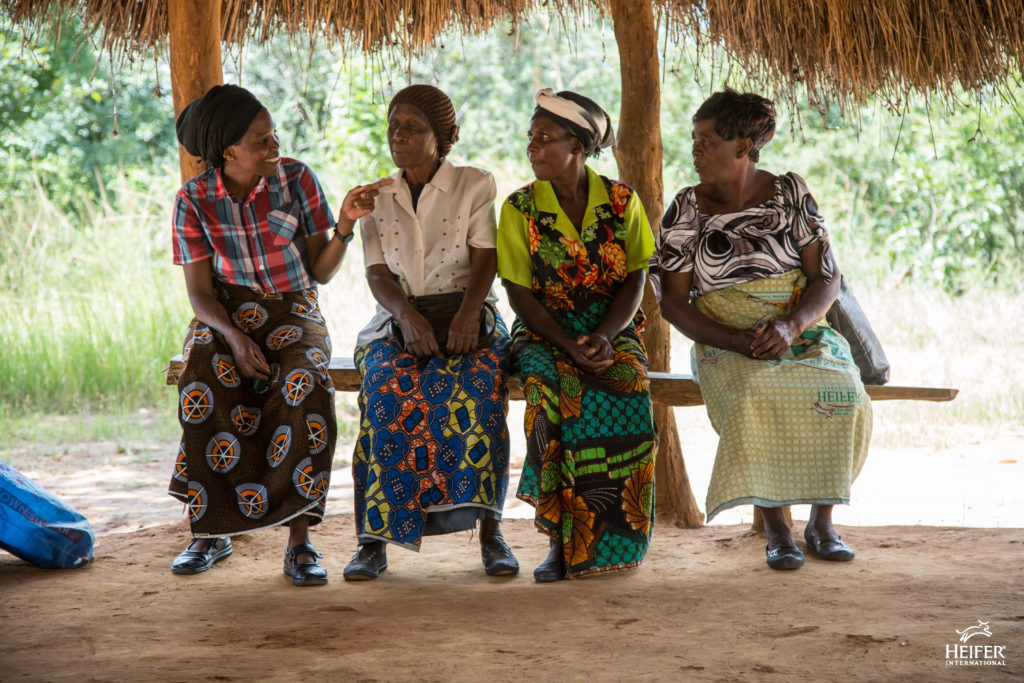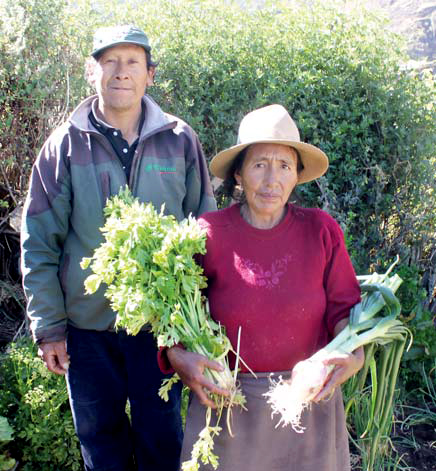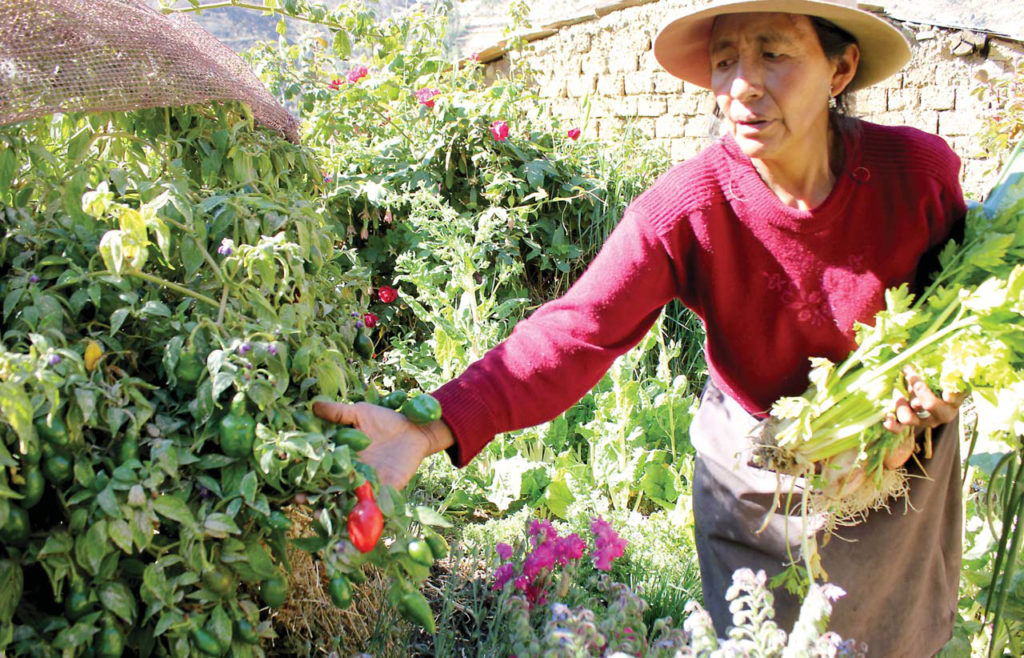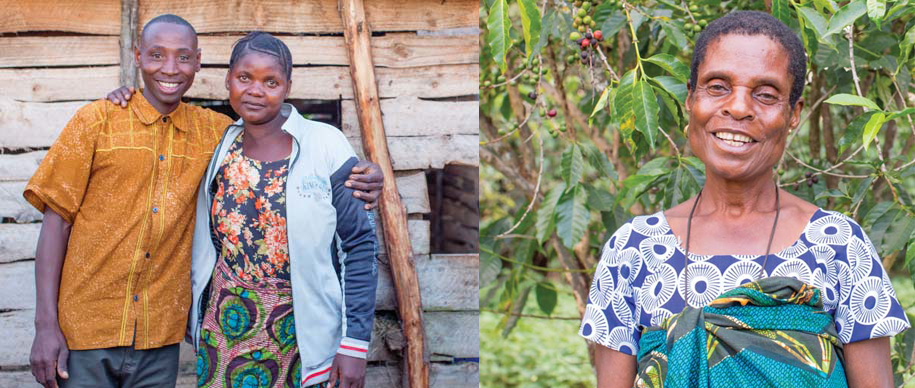It’s Giving Tuesday. How about a story?
https://worldbuilders.org/lottery/
We usually talk about all the cool folks (like yourself) who are pitching in and joining us for our fundraiser. We’ve covered a lot of auctions and lottery donations, but we’d like to pause a moment and share a couple stories from Heifer International about the people for whom we’re raising all this money. Every donation made to this fundraiser goes towards bringing real, life-changing success to families and communities all around the world.
It’s easy to know that your donation is going toward making people’s lives better. But for us, it’s far more satisfying to see the tangible change we’ve helped create. So today, on Giving Tuesday, we want to show you some of the lives we’ve helped to make better. We want to talk about four families who have been helped by Heifer International.
Let’s start with Chasha Veronica. Her story always makes Pat cry, but it’s far from a sad story. Chasha’s story is one that makes your heart explode with emotion, because it’s one of the many runaway successes in Heifer’s long history of helping people get on their feet, stay there, and help the next person up. And it’s no secret that, here at Worldbuilders, the goat is one of our favorite Heifer gifts.
Chasha had very little of her own for most of her life, but when she was selected for a Heifer program, she worked hard to prepare for the gift that would change her life. She cleared a cornfield and sold the corn in order to buy the materials she needed to build goat shelters and pens. Heifer doesn’t just drop off an animal, though: Chasha went through a long period of education and training, learning how to care for goats and learning how to use the goats for long-term, sustainable change.
She received seven goats from Heifer International, to live in the pens and shelters she’d so carefully built. Her initial goats gave birth to five kids, and then those gave birth to twelve more. As Chasha’s herd grew, so did her success. She could now buy food for her family instead of begging for food or money. She could send her granddaughter to school, to give her a brighter future.

Chasha (far right) with Heifer Field Coordinator Emelda Nanyangwe (far left), and members of a self help group.
One of the cornerstones of all Heifer programs is Passing On the Gift. When her herd grew to seventeen goats, Chasha gave away every goat that was pregnant, so that other families in her community could have the same opportunities for success she had been given. “I was given the goats freely,” she said. “So, I wanted to give freely so other people could benefit like I was benefited.”
Thanks to Heifer, Chasha has a better life than she ever dreamed of. Even more than that, she’s been able to directly improve the lives of others–on a large scale by Passing On the Gift to other families in her community, and on a smaller scale by paying for her granddaughter to go to school.
This is really what it’s all about. Heifer helps families help themselves, because, as with Chasha, there’s no better way to help someone gain back her dignity.
A goat is $120. That’s a lot, but just look at how much good it can do. A single goat is far more than the milk it can provide. It’s the money from selling that milk, which can be used to buy food, to build a better home, to send children to school. It’s the kids the goat has, which can grow a family’s herd or be passed on to help another family. It’s the fertilizer that improves crop yields. It’s the power that these families have in knowing that their own hard work, their own knowledge, their own love, was enough to make their world a better place.

Then there’s Félix Rosales, and his wife, Mrs. Gómez. His is a different sort of transformation story that focuses more on how Heifer can improve lives by helping people develop a slightly different way of doing what they’re already good at. You see, Heifer programs can focus on much more than the life-changing power of an animal. They have programs for clean water, and programs for getting girls the education they otherwise wouldn’t have access to. And then there are the programs that promote sustainable farming…
Félix Octavio Rosales has worked in agroecology in Aija, Peru, since 2012. He always used chemical fertilizers and pesticides, attributing their use to not understanding their harm. And he didn’t know there were healthy and less costly options to boost the productivity of his family farm.
He and his wife, Mrs. Gómez, have since joined the Healthy and Sovereign Land project and they no longer use chemicals on their farm.The Rosales-Gómez family attended multiple workshops and training sessions, and learned how to make their own fertilizers and pesticides naturally. They no longer spend money on agricultural chemicals. And their homemade pesticides have kept the plant-damaging pests at bay, while the use of rabbit and guinea pig manure has made their soil nutrient rich.
Félix found the training so impactful that he became a project promoter, and he feels deeply motivated. “I want to teach my neighbors everything I know,” he said. “I want to share all the knowledge I have with other people so they can improve, too. I feel empowered. I have learned many things in the workshops. And, as a promoter, I teach other people so they can see the changes that I have also.”

Mrs. Gómez picks vegetables from her family’s chemical-free garden. The produce yield increased significantly after she and her husband began using organic compost and manure from their rabbits and guinea pigs to enrich the soil. She sells the additional produce at the weekly market fair, empowering her to contribute an income to her family.
Their farm is improving, and so is their health. “Another change is in my health,” he said. “I see this reflected in the way I feel when I work and when I have to walk long distances; I feel better. I see these changes because the food we eat is natural, without chemicals.”
The long-term change effected by Heifer programs are one of the main reasons we support them. We love that Heifer listens to people and helps them improve on their own strengths. We love that the people who take part in Heifer programs can’t wait to share their success with others. And we love that you guys join us every year to help even more families like Félix and Mrs. Gómez, because even a small change can make a huge difference.

There are two more families we want to talk to you about–two families that really help to show the good work Heifer is doing, because these two families are part of the same Heifer program…but while Rahel Mhema and Steven Kipagatie (above, left) have been in the program for five years, Guli Siwale (above, right) is just beginning.
One of Heifer’s most successful programs has been the East Africa Dairy Development (EADD), which works with small-scale farmers in Kenya, Uganda, and Tanzania to improve dairy production at every point, from caring for the animals, to efficient milking techniques, to distribution infrastructure. When Mhema and Kipagatie joined the program five years ago and received a dairy cow, they shared their long-term dreams:
- educate their children through high school and on to university
- establish an orchard
- buy more land for commercial timber
- plant timber trees
- buy a motorcycle
Because this is Heifer, and because you know the shape of a good story, we’re sure you can guess where this is heading. Through the EADD, in just five years Mhema and Kipagatie achieved all these goals and even more. And now they have a new goal: to become entrepreneurs on an even larger scale.
Mhema and Kipagatie are shining examples of success for people like Guli Siwale: a coffee farmer who is eagerly awaiting the gift of a cow. Siwale’s life hasn’t been easy–her husband died in 2005, and she lost her only daughter a few years later. This left her to provide for her three grandchildren, which is a daily struggle. But Siwale believes better days are ahead, because very soon, she will receive her cow.
A single cow will provide enough milk to keep the family healthy, and any surplus can be sold to help raise money to meet the rest of the family’s needs. Not only that, the cow’s manure will help improve her coffee crop, meaning more success all around. Her dream is to set up small businesses for her grandchildren, to give them the same hope she feels. “I will be able to lead a life that other people are leading,” Siwale said. She sees hope for her family, and a way to steady all the upheavals in their lives.
Heifer International doesn’t ever just provide an animal, and doesn’t ever just provide education. What Heifer really gives goes a lot deeper than that: they give families hope. Hope that the next day will be brighter than the last, hope that their goals really are within reach, hope that they can provide a better future for their children and grandchildren. Hope that the world really can be a better place.
Yes, that hope comes with a whole lot of hard work, but for the first time, success is attainable. Chasha Veronica will no longer have to beg to survive. Félix Rosales will have better health and higher crop yields. Rahel Mhema and Steven Kipagatie will check off all the goals on their list, and Guli Siwale is not far behind them as her hope for a cow of her own will finally be realized. Heifer gives hope and the ability to make it a reality.
Today is Giving Tuesday, and we’d love to have you join us in giving hope–and so much more–to families all around the world. Together, we can make a difference.
Just ask Chasha Veronica.
